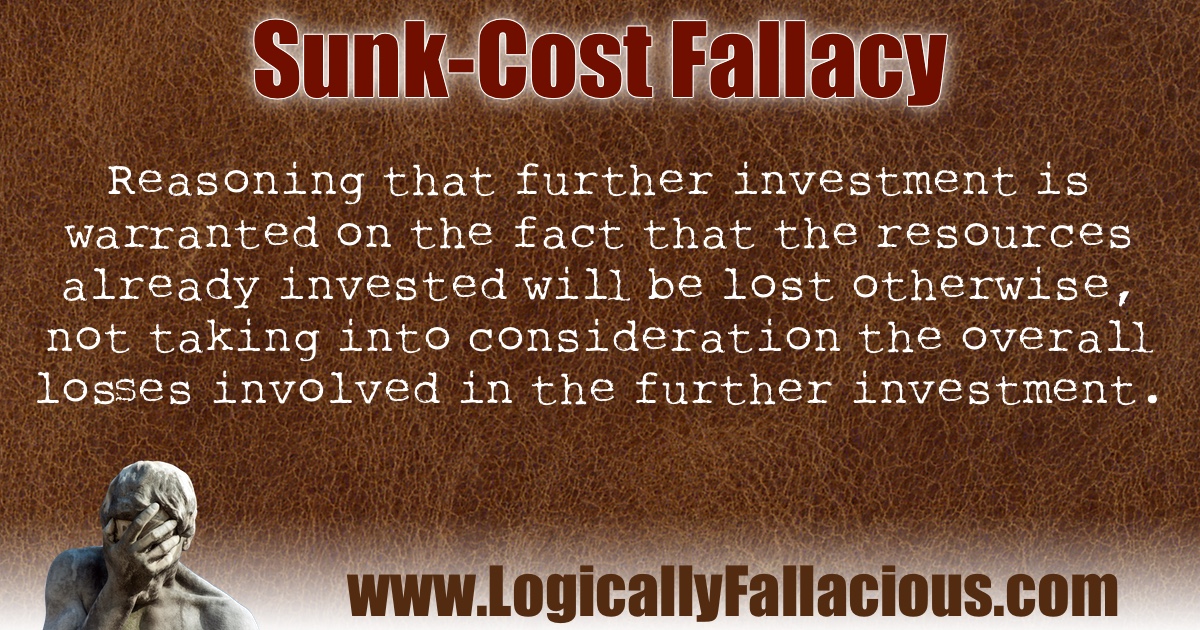(also known as: argument from inertia, concorde fallacy, finish the job fallacy)
Description: Reasoning that further investment is warranted on the fact that the resources already invested will be lost otherwise, not taking into consideration the overall losses involved in the further investment.
Logical Form:
X has already been invested in project Y.
Z more investment would be needed to complete project Y, otherwise X will be lost.
Therefore, Z is justified.
Example #1:
I have already paid a consultant $1000 to look into the pros and cons of starting that new business division. He advised that I shouldn’t move forward with it because it is a declining market. However, if I don’t move forward, that $1000 would have been wasted, so I better move forward anyway.
Explanation: What this person does not realize is that moving forward will most likely result in the loss of much more time and money. This person is thinking short-term, not long-term, and is simply trying to avoid the loss of the $1000, which is fallacious thinking.
Example #2: There are ministers, priests, pastors, and other clergy all around the world who have invested a significant portion of their lives in theology, who can no longer manage to hold supernatural beliefs -- who have moved beyond faith. Hundreds of them recognize those sunk costs and are searching for the best way to move on (see http://www.clergyproject.org) whereas many others cannot accept the loss of their religious investment, and continue to practice a profession inconsistent with their beliefs.
Explanation: Of course, the clergy who have not moved beyond faith and are living consistently with their beliefs have not committed this fallacy.
Exception: If a careful evaluation of the hypothetical outcomes of continued investment versus accepting current losses and ceasing all further investment have been made, then choosing the former would not be fallacious.
Tip: Is there any part of your life where you continue to make bad investments because you fear to lose what was already invested? Do something about it.
